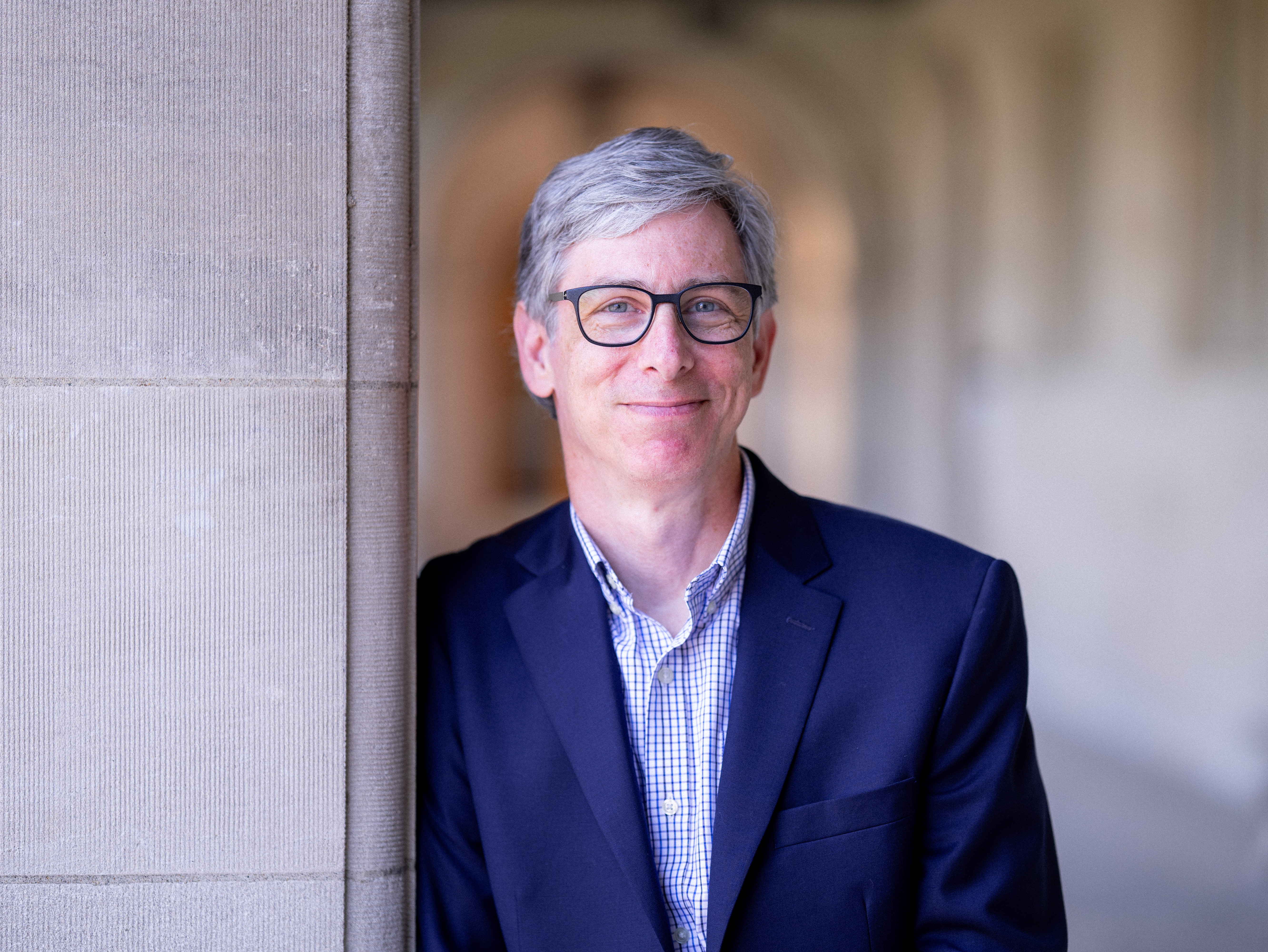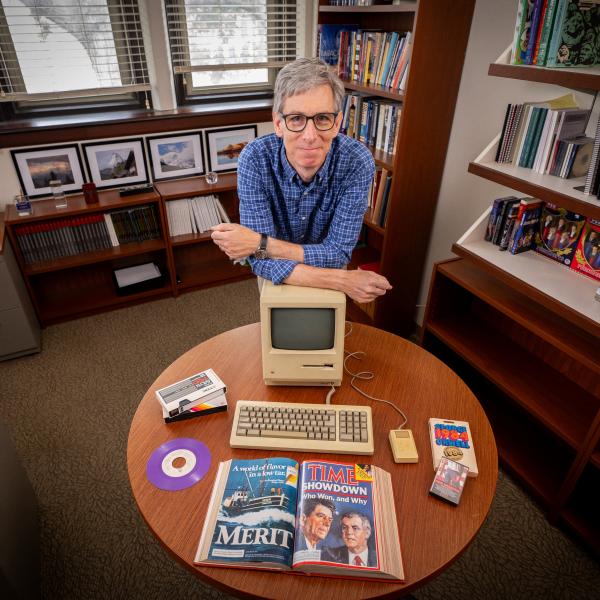In his new role, Peter Kastor will help faculty members in the arts, humanities, and social sciences seek out and apply for external funding.
Peter Kastor, the Samuel K. Eddy Professor in the Department of History, has assumed the role of associate vice dean of research in the humanities, humanistic social sciences, and creative practice, effective August 15. In his new role, he will help Arts & Sciences faculty compete for external awards, fellowships, and grants. “We have extraordinary faculty in Arts & Sciences and I welcome the opportunity to support them in their important and innovative research,” Kastor said.

Deanna Barch, vice dean of research and the Gregory B. Couch Professor of Psychiatry, said that the new position was created to help faculty members get the most out of their ideas. “My expectation is that Dr. Kastor and I will be able to work productively and synergistically to provide the diversity of support needed to help all of our faculty excel,” she said.
Working closely with Barch, Kastor will identify opportunities for external funding and assist faculty with the application process. He will also track the competitiveness of different research programs and make recommendations to Arts & Sciences leadership that address weaknesses and build on strengths.
The overall mission is to support faculty in achieving their research goals, Kastor said. “We’ll pursue new ways for faculty to fund their work, develop ideas, write their books, and circulate the new knowledge that is at the core of what we do,” he said. “I also see this as a wonderful moment for the humanities, social sciences, and natural sciences to learn from each other, not only about what they study, but also about how they study.”
Kastor studies the intersection of politics, policymaking, and culture in American history. His research and teaching focus on the American presidency, especially during the formative and turbulent decades following American independence.
Barch noted that Arts & Sciences faculty received record-breaking levels of external support — over $55 million — in fiscal year 2023. She said the funding reflects the hard work and creativity of the faculty, the success of the Arts & Sciences Strategic Plan, and the efforts of the Research Development Office and the Grants Administration Integrated Network.
Barch anticipates that Kastor will help faculty build on that momentum to reach new heights in 2024 and beyond. “Our faculty have many exciting opportunities ahead of them,” she said. “This new position illustrates leadership’s commitment to supporting research and scholarship across all disciplines.”



